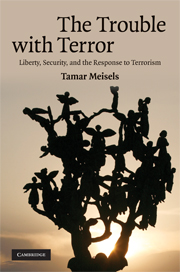4 - Combatants – lawful and unlawful
Published online by Cambridge University Press: 04 August 2010
Summary
The September 11 attacks led many Americans to believe that al-Qaida had plunged the US into a new type of war, already familiar to some of the country's closest allies. Subsequent debates over modern terrorism often involve a sort of lamentation for the passing of old-fashioned wars. Paul Gilbert's New Terror, New Wars suggests that at least when it came to old wars we knew when they were taking place, who was fighting them, and what they were fighting about. Old-fashioned wars were, by and large, about territory, whereas “new wars” may be more concerned with collective identities and their political recognition, and represent ideological struggle between, say, liberalism and Islamists. Perhaps most significantly, and the greatest source of nostalgia, is that in the past, as Gilbert reminds us, a state of war existed between sovereign states, whereas “new wars” exist “between a state, or a combination of states, on one side, and non state actors on the other.” As George Fletcher puts it, we are in “a world beset with nontraditional threats from agents we call ‘terrorists’.”
This chapter focuses on the new type of agents involved in contemporary armed conflicts and their rights. In the first two chapters of this book I argued that terrorism should be strictly defined as a particular form of political violence. The argument advanced in this chapter does not entail the legal and scholastic controversy over the definition of the term “terrorism” as distinct from other forms of irregular warfare.
- Type
- Chapter
- Information
- The Trouble with TerrorLiberty, Security and the Response to Terrorism, pp. 90 - 126Publisher: Cambridge University PressPrint publication year: 2008



